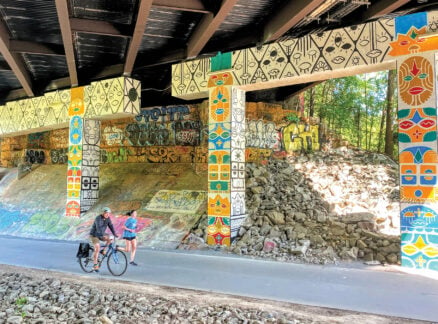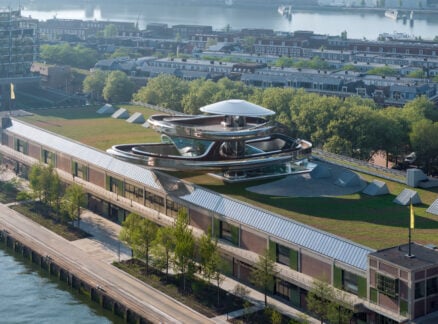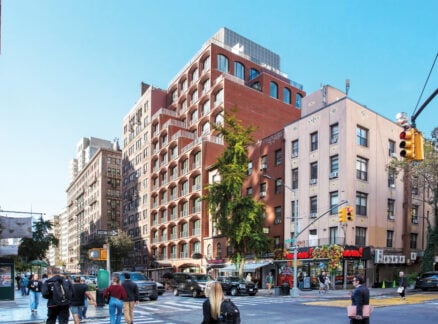April 1, 2013
Coca-Cola’s Green Initiative Transforms an Unused Helipad in Mexico
An unused helipad is the landing spot for Coca-Cola’s new green initiative in Mexico.
ARCHITECTS
Rojkind Arquitectos
www.rojkindarquitectos.com
PROJECT
Transformadora Ciel
Rubén Darío 115
Col. Bosque de Chapultepec
www.idea.me/transformadoraciel
Mexico City
An unlikely patch of green floats 13 stories above Mexico City’s Polanco neighborhood. Indigenous cacti and agave cover the top of a triangular building, surrounding a rooftop open-plan office. Inside sit eager entrepreneurs, whose business ideas for farming schools, sustainable toys, and the like are being cultivated by Coca-Cola Latin America, which occupies the rest of the building.
Last year, the company’s Mexican water brand, Ciel (known stateside as Dasani), launched Transformadora Ciel, a crowdfunding-inspired program that incubates initiatives for social or environmental change. In order to prove that it is not turning a blind eye to the ever-eroding global resources its parent company undeniably depends on, Ciel knew that it would have to create a sustainable space for the program. “It was about transformation,” says Michel Rojkind, principal of Rojkind Arquitectos, the Mexican firm selected to design the new space.
The helicopter-landing pad on the roof of Coca-Cola’s Latin American headquarters seemed the perfect terrain for Transformadora to touch down, says Alberto Villarreal, the creative director of the design firm Agent, a collaborator on the project. Rojkind and Villarreal worked around the equipment on the roof, fashioning an amoeba-shaped platform to house the offices, leaving structural elements such as beams and piping exposed.
The team used eco-conscious materials such as water-based paints, LED lighting, and solar panels, which power the office’s air conditioning and a majority of its lighting. The upper exterior deck was made with teak from a local Mexican manufacturer, and the interior floors are PVC-free. Villarreal and Rojkind also used a system to save rainwater for year-round irrigation for the plants.
“We turned a space that was dead and unused into something active and livable,” Villarreal says, creating a symbol of Coca-Cola’s pledge to champion social and environmental progress. Entrepreneurs will soon start meeting investors in the 1,600-square-foot space. “Our commitments are ambitious,” says Sergio Spínila, Ciel’s marketing director. “We recognize that we won’t be able to meet all of them on our own, but we believe that this collaboration with a wide range of partners will help us find the answers.”





